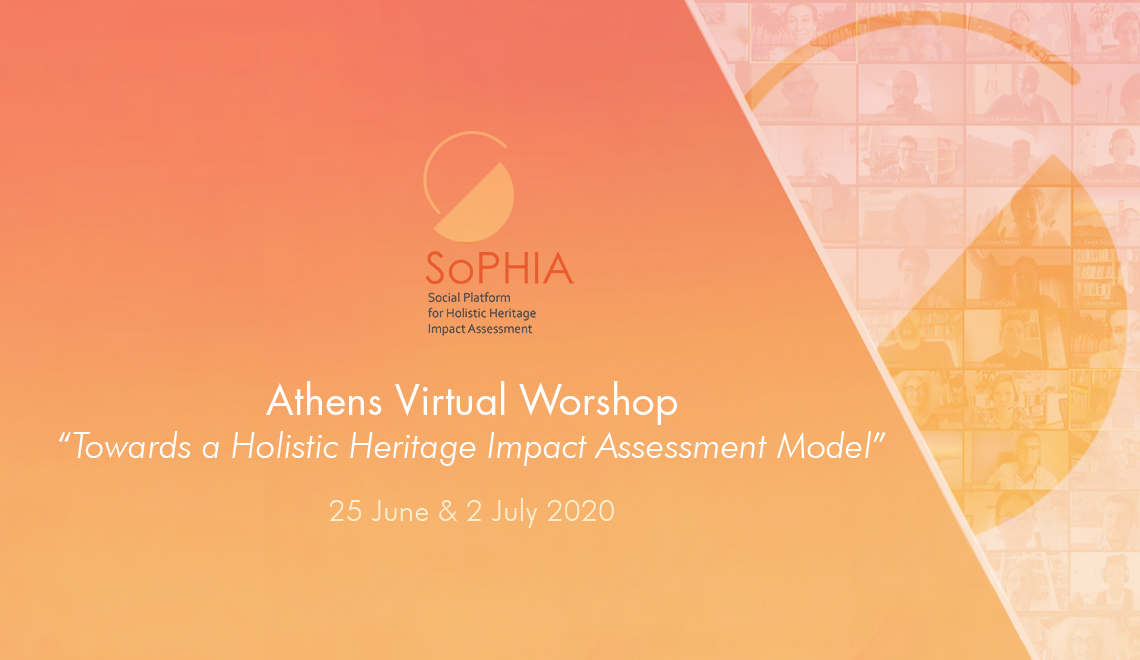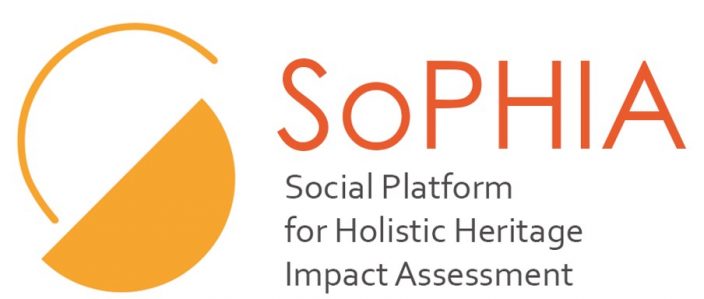
Project facts
Presentation
SoPHIA – Social Platform for Holistic Impact Heritage Assessment aims to promote collective reflection within the cultural and political sector in Europe on the impact assessment and quality of interventions in European historical environment and cultural heritage at urban level.
According to the Work Programme 2018-2020, Europe in a changing world – Inclusive, innovative and reflective societies of Horizon 2020, the way cultural heritage is preserved and enhanced is a major factor defining Europe´s identity and its place in the world. In this sense, high quality interventions in cultural heritage contribute to local communities´ well-being and to the development of sustainable cultural tourism. On the other hand, low-quality interventions may not only damage irreplaceable historical elements, their environment and related intangible heritage but also foster negative perceptions by society.
Under this rationale, SoPHIA´s work is aimed at creating a Social Platform, a vast and diverse community of stakeholders from different fields and disciplines interested in interventions in historical environment and cultural heritage in Europe, that work together towards the definition of an effective impact assessment model, quality standards and guidelines for future policies and programmes.
With the constant active participation of the social platform, SoPHIA's work is organized around four main analytical dimensions – social, cultural, economic and environmental impact – which constitute perspectives to identify the most important challenges and opportunities linked to cultural heritage interventions in Europe. SoPHIA structures the analysis through a targeting process in two stages:
1. A first exploration of the general topic and the current situation as regards policies, assessment and quality of interventions, including best practices, and the creation of a draft holistic impact assessment model.
2. Analysis of selected topics in depth with specific case studies, to confirm or adjust the impact assessment model. The model will be based on 3 axes: people, domains and time.
The final step consists in synthetizing the findings against the results and drafting recommendations for both practitioners and policy makers on the impact assessment of interventions on cultural heritage and future good quality interventions. The analysis and policy papers will focus on European heritage, however, the final aim is to propose models and standards that can potentially be applied internationally.
Impacts & Results
Results targeting stakeholders
- Set of criteria to assess critical impacts and the acquisition of capabilities in order to breakdown the existing perceived barriers preventing practitioners and local communities to play an active role in the assessment of the quality of intervention in the cultural area.
Results targeting policymakers
- Increase awareness at EU, national and local levels about the importance of a holistic approach in evaluating the quality of interventions in cultural heritage.
- Production of policy recommendations.
Results targeting researchers
- An innovative holistic impact assessment model as a stimulus to bring forward the scientific and academic debate.
- A series of contributions in leading international and national peer-reviewed journals, reviews and periodicals aimed at the scientific community.
- Ideas for enriching courses currently taught and for developing new academic teaching materials for major higher education institutions at both undergraduate/graduate and post-graduate levels.
Illustration - Banner: Dubrovnik, Croatia © Spencer Davis

